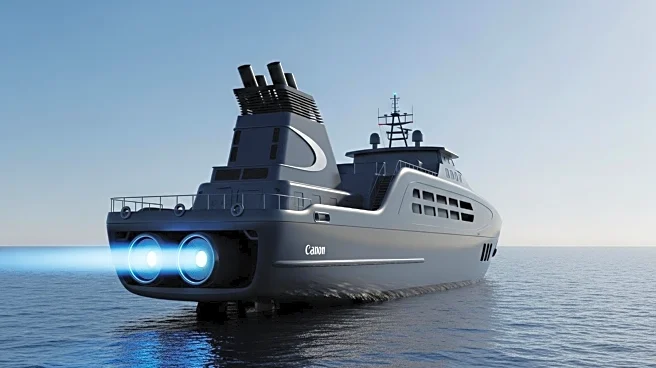What is the story about?
What's Happening?
The Maritime Technologies Forum (MTF) has published a comprehensive report detailing guidelines for the safe inspection of methanol dual-fuel ships. These guidelines aim to address the specific risks associated with methanol as a marine fuel, such as its flammability, toxicity, and corrosivity. The report, developed with input from the Maritime and Port Authority of Singapore, includes 41 safety recommendations covering pre-inspection preparations, inspection protocols, and post-inspection considerations. The guidelines are intended to complement existing inspection requirements and support the maritime industry's transition to alternative fuels.
Why It's Important?
The introduction of these guidelines is significant as the maritime industry increasingly adopts methanol as a fuel to meet stringent International Maritime Organization emission regulations. Methanol's unique properties pose distinct challenges for ship inspectors, and the guidelines provide a practical framework to manage these risks effectively. By ensuring safe inspections, the guidelines support the industry's efforts to decarbonize and transition to cleaner fuels, which is crucial for environmental sustainability and compliance with global emission standards.
What's Next?
The guidelines are expected to be adopted by maritime organizations to establish new safety protocols or enhance existing procedures. As the industry continues to explore alternative fuels, the guidelines may serve as a model for future inspection standards for other fuel types. Stakeholders, including shipowners and regulatory bodies, will likely assess the guidelines' impact on inspection processes and consider further developments in methanol fuel technology.
Beyond the Headlines
The guidelines highlight the collaborative efforts of international maritime stakeholders in addressing safety concerns associated with new fuel technologies. This initiative reflects a broader trend towards global cooperation in the maritime sector to achieve environmental goals and enhance safety standards.
















